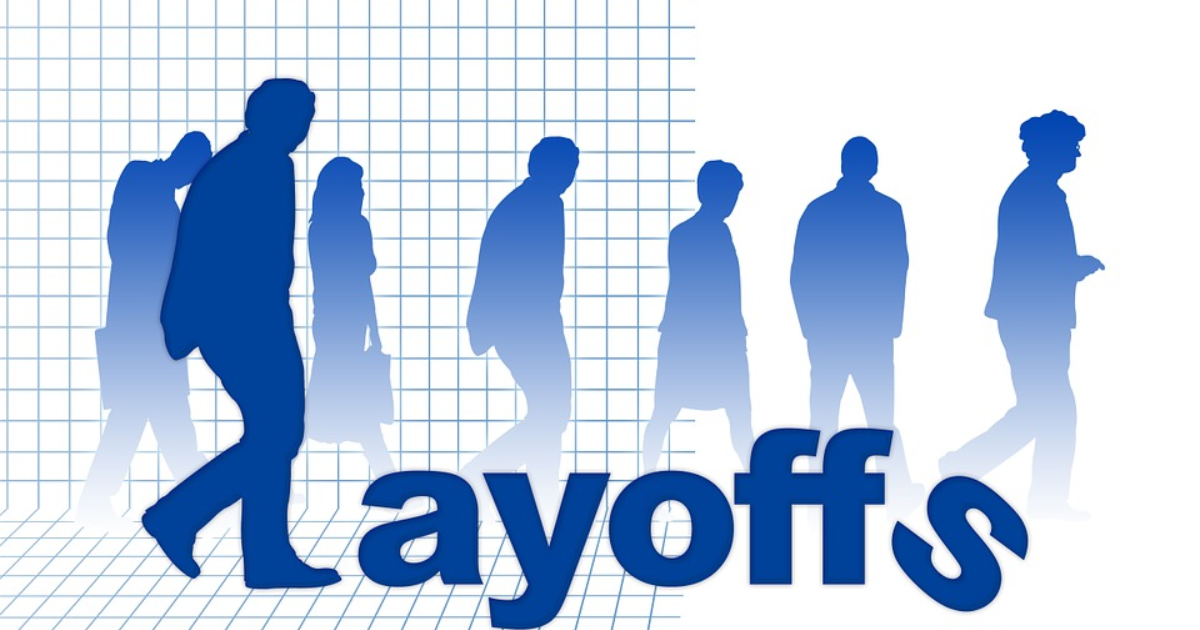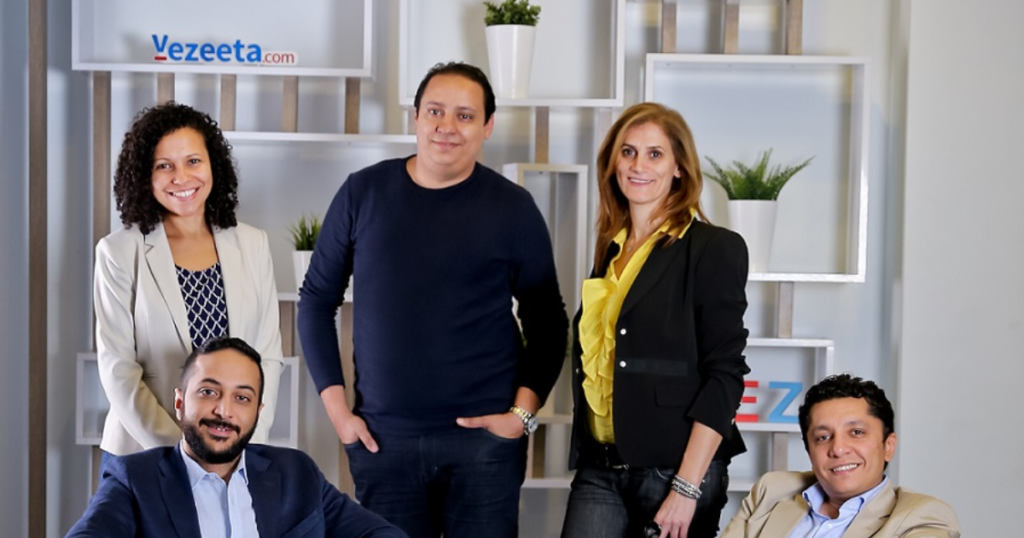Egypt's Healthtech Startup, Vezeeta, Lays Off 10% of its Staff: The Recent Wave of Downsizing by African Startups

Judging by how amazingly the African tech startups performed in fundraising in the Q1 2022, one would have expected the tech ecosystem to continue to do wonders and possibly, outperform its last year’s record, where it secured $4.4 billion in funding.
According to data from the Big Deal, compiled by Max Cuvellier, Head of Mobile for Development, GSMA, and Maxime Bayen, Senior Venture Builder for BFA Global, as reported by Business Day, a total of $2.25 billion was raised in funding activities by tech companies in Africa in the first four months of 2022.
This funding represented 2.5x the amount the startups raised by the end of April 2021, five times the amount raised in 2020, and 8 times the amount raised in 2019. It is already over half of the total amount introduced in 2021 at $4.4 billion. Furthermore, the $2 billion milestones were reached in 17 weeks, almost twice as fast as in 2021, which took 30 weeks.
Cuvellier remarked, “If the ecosystem can maintain this momentum and keep raising over half a billion dollars a month on average throughout the year, it is on track to raise almost $7 billion in 2022.”
Also, data for the first quarter of 2022 shows that most funding has gone to four countries. Nigeria leads the way with $600 million, followed by Kenya with $482 million, South Africa with $228 million, and Egypt with $202 million.
Despite the first-quarter report, there is a growing concern among investment analysts. Experts had predicted a tech startup funding slowdown as investors began to ask high-impact startups to go back to the basics – chase profits and reduce their cash burn. The shutdown of companies such as Fast, which raised $100 million a year before closing shop, has investors pulling back from writing cheques for tech companies. In India, tech companies have been laying off workers, with as many as 1,800 fired as of April 2022.
“With the tech slowdown on the way, I hope that in Africa, we can move away from obsessing overvaluation and focus on value creation. In 2021, at least three European startups crossed $100 million in annualized revenue. Average time to $100 million? 4.7 years,” said Peter Oriaifo, Principal Investor with Oui Capital.
We are winding down the second quarter, and the African tech ecosystem is yet to record a new unicorn, unlike in 2021 when Flutterwave saw its valuation soar to over $1 billion after it raised $170 million in Series C.
Q2 2022 has witnessed a slow in funding activities from global VC firms. According to Crunchbase, there has been a steady decline in VC funding over the past months. And African startups haven’t been spared from the trend. As a result, there has been a significant slowdown in the amount they’ve raised, especially compared to the amount raised in Q1 2022.
Some stakeholders are already speculating about a possible funding crunch for African startups soon. And it’s easy to see why they are worried — global VC funding has recently been declining monthly, according to Crunchbase. And Africa isn’t exempt from this trend, primarily as the African tech ecosystem seriously depends on foreign investors for funding.
As the world continues to bear the brunt of the Russia-Ukrainian war, there is an increased surge in food prices, cash crunch, and general economic hardship.
According to data from Layoffs FYI Tracker, over 861 tech startups have laid off 139570 of their employees Since COVID-19 (3/11/20). Recently, there has been a growing concern in the African tech ecosystem as more startups either cut down their staffing strength, downward reviewed their staff earnings, or partial or total shut down.

The most recent is the Egypt and Dubai-based health tech startup, Vezeeta which provides seamless health care across the Middle East and Africa and is said to have laid off about 10% of its staff last week. The exact number of the affected employees isn’t known yet; however, multiple sources who posted the news on LinkedIn, including affected employees, revealed that up to 50 people were disengaged. Vezeeta has almost 500 employees, according to its LinkedIn page.
Vezeeta last raised $40 million in Series D funding from Gulf Capital and Saudi Technology Ventures (STV) in 2020. According to Amir Barsoum, the CEO, the health tech has received $73 million in total and is generally touted as one of Africa’s and the Middle East’s soonicorns.
Vezeeta’s offering evolved from the “Uber for Ambulance” model it launched in 2012 to a subscription-based doctor booking and consultation platform. As of 2020, it was operating in 50 cities across Egypt, Saudi Arabia, Jordan, and Lebanon and claimed its user base had grown 3x year-over-year to 4 million patients, with 30,000 healthcare providers using its software-as-a-service solution. But currently, the platform caters to 10 million patients across 78 cities (including Nigeria and Kenya, its latest addition) via three outpatient touchpoints: doctor consultations, pharmacy, and diagnostics.
Like many health tech startups in the region and globally, Vezeeta benefited from pandemic-induced funding. Before this news, there was no indication that the 10-year-old company needed to cut costs. But if there’s anything the current venture capital landscape has shown, no sector is immune to layoffs, as startups from real estate, crypto, q-commerce, and fintech (among others) laid off more than 16,000 employees just last month.
Vezeeta is the first significant player in Africa and the Middle East to be affected. The health-tech startup didn’t release any statement on what led to its decision or plans for the future. Still, affected employees stated reasons Vezeeta probably highlighted in its discussion with staff. One said the layoffs resulted from “disasters in the market,” while another said it was “due to the global market crisis caused by the war in Ukraine.”
This is coming at the backdrop of Kune Food, a Kenya-based food tech startup, announcing on June 22nd, 2022, that it is shutting down barely nine months since it started operations in the East African country.
The founder and CEO, Robin Reecht, attributed inflated food prices and the inability of the startup to raise another round since its seed round last year as the reasons for the shutdown.
Earlier, we have reported that Swvl, an Egyptian bus-hailing startup, has suspended its daily and city-to-city services in Kenya and Pakistan effective from June 3rd, 2022. Also, two months after going public, SWVL is considering laying off 32% of its workforce in what the Dubai-based startup described as part of a portfolio optimization program to enhance efficiency and reduce central costs to accelerate its profitability and turn cash flow positive in 2023.
As insignificant as 10 percent might seem, it signals a loss in the fight to reduce the ever-growing army of the unemployed African population, especially the youth, and the government of the respective African states must be deliberate in creating a conducive environment for startups to thrive.
